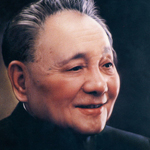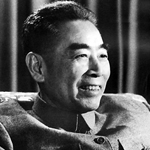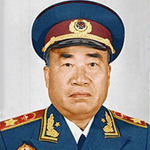|

Editor's Note:
Almost one hundred years ago, many progressive and passionate Chinese youths studied advanced management and theory abroad in order to bring home knowledge that could help build a stronger China. Some of theses young leaders contributed to the establishment of the People's Republic of China and later became early leaders of the Communist Party of China.
|

|
Deng Xiaoping: (1904-1997)
Due to a vibrant study experience in France, Deng Xiaoping made himself China's greatest revolutionary and reformist. [Full story] |
|

|
Zhou Enlai: (1898-1976)
Zhou Enlai was one of a few leaders in China who had studied in several western developed countries. He gradually realized that only if people held high the Marxism flag, and kept walking on revolutionary road, could the independence and prosperity of China be realized. [Full story] |
|

|
Zhu De: (1886-1976)
"Although Zhu De spent a very short time in Göttingen University on further study, I believe his experience in Germany made a great impact on his personal improvement, even on the history of the new China and the Chinese Communist Party." [Full story] |
|

|
Liu Shaoqi: (1898-1969)
Liu Shaoqi was a Chinese Communist leader and President of the People's Republic of China from April 27, 1959 to October 31, 1968. His education and his extensive experience abroad later made him one of the most cosmopolitan Chinese leaders.[Full story] |
|
 0 Comment(s)
0 Comment(s) Print
Print E-mail
China.org.cn, June 21, 2011
E-mail
China.org.cn, June 21, 2011
 0 Comment(s)
0 Comment(s) Print
Print E-mail
China.org.cn, June 21, 2011
E-mail
China.org.cn, June 21, 2011
Go to Forum >>0 Comment(s)